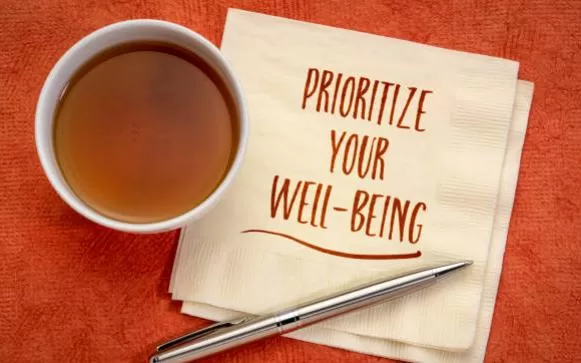How Can I Use Self-Love To Improve My Communication Skills?
Learn how to use self-love with these ways to build the confidence we need to communicate in honest and effective way.

Selfpause Affirmation App
Download the app to get 1,000’s of affirmation meditations and everything you need to write, record and listen to your own.
Communication is an important part of our daily lives, and having good communication skills can help us build better relationships, reach our goals, and live a more fulfilling life. But many people have trouble communicating, whether it’s because they’re shy, afraid of conflict, or just don’t have enough confidence.
Self-love can be a powerful way to improve our ability to talk to other people. By learning to love and accept ourselves, we can build the confidence and self-assurance we need to communicate in a way that is honest and effective.
Here are some ways that loving yourself can help you communicate better:
Practice Self-Acceptance

Self-love depends on being able to accept yourself as you are, flaws and all. This is called self-acceptance. When you accept yourself, you feel more at peace with yourself and more confident, which can help you talk to other people better. Instead of focusing on your flaws or weaknesses, think about your strengths and what you have to offer when you’re with other people.
Prioritize Self-Care

Taking care of yourself is important for your physical, emotional, and mental health. When you put yourself first, you give yourself the energy and emotional resources you need to talk to other people in a healthy way. This could mean giving yourself time to relax and do things that make you happy, or it could just mean getting enough sleep and exercise.
Try to listen actively.

Active listening means taking part in a conversation fully and trying to understand the other person’s point of view. When you listen actively, you show the other person that you respect and care about them. This can help you build trust and rapport with them. Try to be present and listen when you’re talking to someone. Don’t interrupt, and ask thoughtful questions to show that you’re interested in what they have to say.
Establish Boundaries

Setting limits is an important part of self-love, and it can also help you communicate better with other people. By setting clear limits and being assertive about them, you show respect for yourself and others and set up a framework for healthy, respectful interactions. When setting limits, be clear about what you want and what you expect, and be ready to stick to them.
Try to be kind to yourself.

Self-compassion is showing yourself kindness, empathy, and understanding, even when you are stressed or having a hard time. When you practice self-compassion, you build an inner sense of calm and strength that can help you communicate better in tough situations. Even if you make mistakes or have trouble communicating, try to treat yourself with kindness and understanding.
Practice being aware

Mindfulness means being aware of your thoughts and feelings in the present moment and staying in the moment. When you practice mindfulness, you get clearer and more focused, which can help you talk to people in a more honest and effective way. Try to be present and aware when you’re with other people. Pay attention to the conversation and don’t look at your phone or other devices.
Celebrate Your Successes

Lastly, it’s important to celebrate your successes and progress as you work to improve your communication skills. By noticing and celebrating your accomplishments, you boost your sense of self-worth and confidence, which can help you talk to other people. Try to focus on the good things about your communication and celebrate your successes, no matter how small they may seem.
In the end, self-love can be a powerful way to improve your ability to talk to other people. By practicing self-acceptance, putting yourself first, prioritizing self-care, active listening, setting boundaries, self-compassion, mindfulness, and celebrating your successes, you can build the confidence and self-assurance you need to communicate with others in a genuine and effective way. Remember to be patient and kind to yourself as you go through this process, and to talk to other people with openness, empathy, and honesty. With time and practice, you can improve your communication skills and build stronger, more satisfying relationships in all areas of your life.
It’s important to remember that getting better at communicating takes time and work, so be patient with yourself as you work to improve. If you need more help or resources, don’t be afraid to look for them, whether that’s through therapy, coaching, or self-help materials. By working on your communication skills and learning to love and accept yourself, you can make your life and the lives of those around you more fulfilling and real.
You can also use some other tips and tricks to improve your communication skills on top of these.

These things are:
paying attention to things like body language and the way someone sounds when they talk. These nonverbal cues can tell you a lot about what a person is thinking and feeling, which can help you respond to them better.
Active empathy means trying to see things from the other person’s point of view and feeling what they feel. By showing empathy, you can connect with the other person, gain their trust, and have a better, more productive conversation.
Trying not to talk badly to or about yourself during conversations. Instead, think about what you’re good at and what you can offer the conversation, and try to go into it with a positive and sure-of-yourself attitude.
Being assertive means letting people know your needs and limits in a clear and respectful way. By being assertive, you can make your relationships stronger and more respectful, and you can avoid fights or misunderstandings.
Seeking and using feedback from others to improve your communication skills. By asking for feedback and taking it seriously, you can figure out where you need to improve and make good changes to the way you talk to people.
In the end, practicing self-love can be a powerful way to improve your ability to talk to other people. By learning to accept yourself, making self-care a priority, practicing active listening, setting boundaries, practicing self-compassion, practicing mindfulness, and celebrating your successes, you can build the confidence and self-assurance you need to communicate effectively and honestly with others. As you go through this journey, remember to be patient with yourself and to talk to other people with empathy, openness, and honesty. With time and practice, you can get better at talking to people and build better relationships in all parts of your life.
